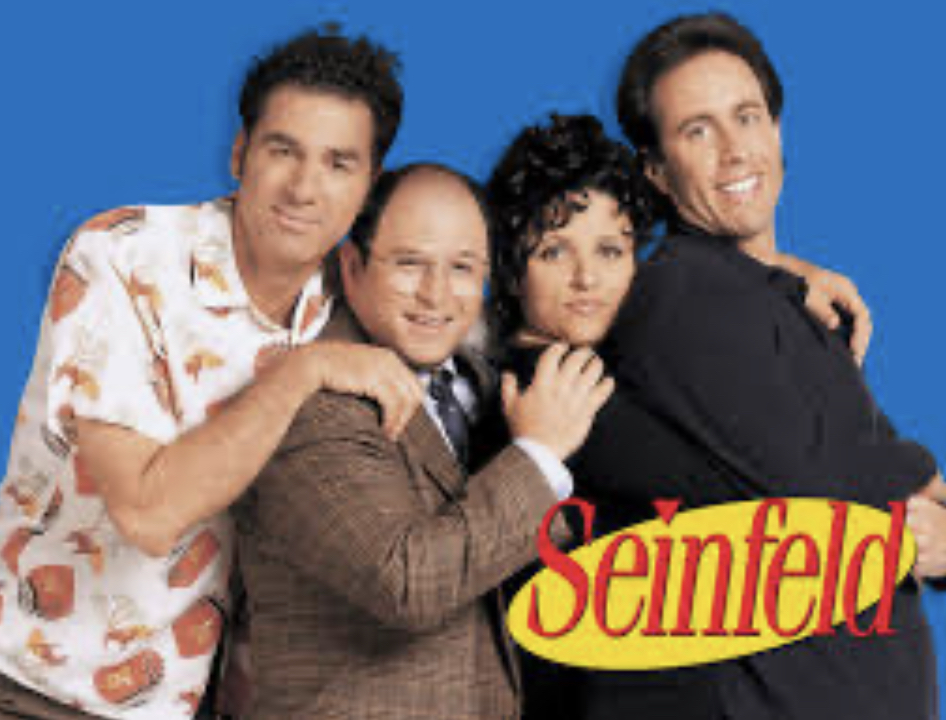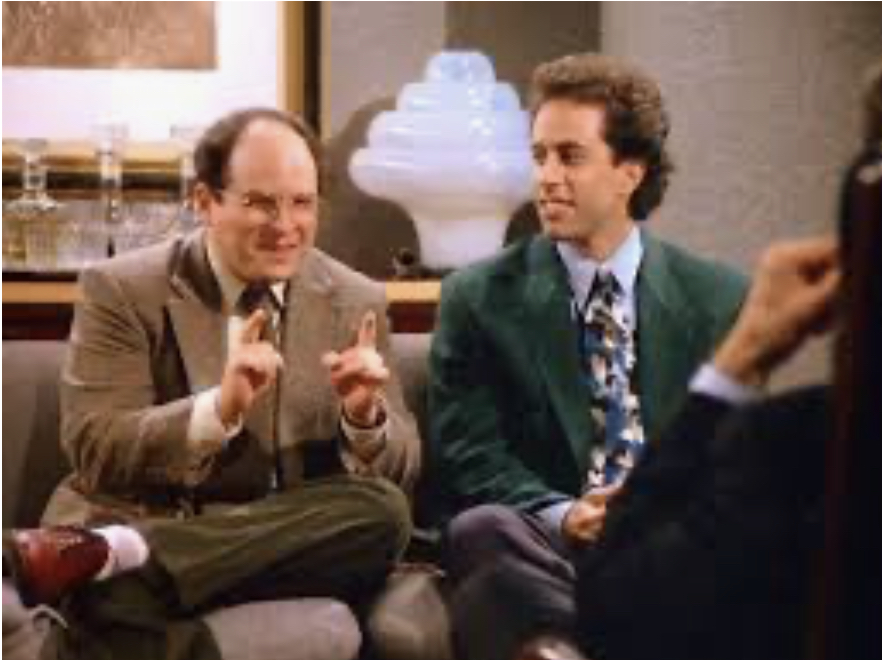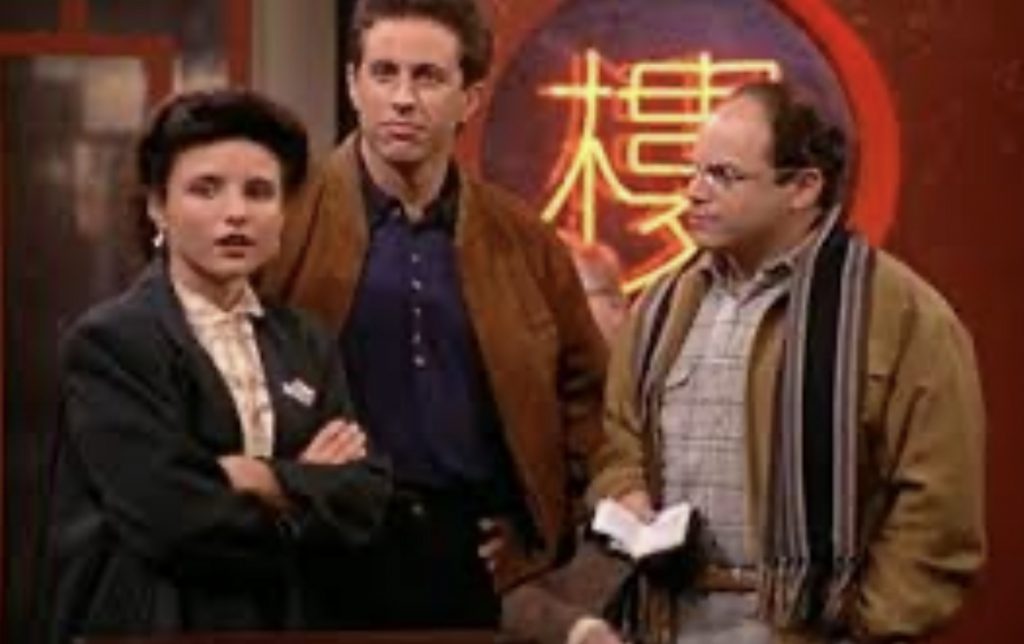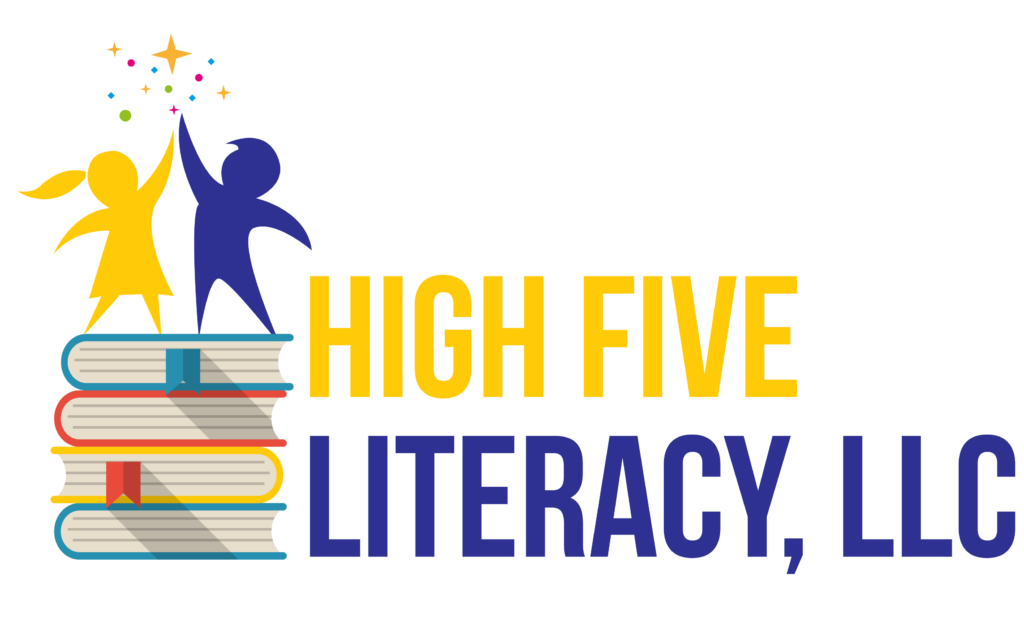
When the sitcom, Seinfeld, first aired in 1989, it soon became known as a “show about nothing.” Jerry Seinfeld was the lead character and played a fictionalized version of himself. Many of the episodes took place in Jerry’s apartment where he and his group of friends, George, Elaine, and Kramer, would have conversations about innocuous incidents and events that happened throughout their “normal” lives. Who could ever have imagined that this show about “nothing” would become one of the biggest hits on television? And, yet it did, running for over nine years, through 1998, and becoming the source of catchphrases and jokes that are still relevant and funny today. But that is fiction, humor, and comedy. Unfortunately, this series about “nothing” reminds me of reading instruction going on in schools today across the country. Instruction that has no basis in science, no evidence supporting its use, and no requirement that basic reading skills be taught. How is it possible that a reading program about “nothing” could become so popular?
I had a vision involving a rewrite of a famous Seinfeld episode using a cast of characters from the Whole Language/Balanced Literacy world: Richard “Dick” Allington as Jerry Seinfeld, Lucy Calkins as George Costanza, Irene Fountas or Gay Su Pinnell as Elaine, and Ken Goodman as Kramer. The episode that I am thinking about is the one where NBC executives meet with Jerry after seeing his comedy act and ask him to come up with an idea for a TV series. George decides he, too, can be a sitcom writer and comes up with the idea of creating the show about “nothing” – no plot, no stories, nothing. Here’s a rewrite of the script:

LUCY: See, this should be a reading program. This is the program.
DICK: What?
LUCY: This. Just talking about books.
DICK: (dismissing) Yeah, right.
LUCY: I’m really serious. I think that’s a good idea.
DICK: Just talking? Well what’s the reading program about?
LUCY: It’s about nothing.
DICK: No skills? No phonics?
LUCY: No – forget the phonics. We will teach kids to read with pictures.
DICK: You’ve got to have phonics.
LUCY: Who says you gotta have phonics? Remember when we were looking at a menu in a Chinese restaurant and used the pictures to help us order the food? That could be a reading program. I am going to call it “Reading Workshop.” It sounds so collaborative, so inviting.

DICK: And who will be in on this? Who will help us build this idea?
LUCY: I can be the writer.
DICK: You?
LUCY: Yeah. You can write articles promoting the idea and sharing it with your students.
DICK: So, in this program we just talk about books?
LUCY: Yeah. Is there something wrong with that? We’ll give out Post-it Notes for children to jot down their thoughts. People are always saying to me, “Lucy, write it down.”
DICK: And who else can join us?
LUCY: Irene and Gay could guide readers. Hey, they can call it “Guided Reading.” They are very good at talking about books. I bet they could come up with a system and make it as easy as ABC! Maybe Ken can be involved too… his science is, you know, different…
DICK: Now he’s a character. (Pause) So everybody I know is going to be in on it.
LUCY: Right.
DICK: And it’s about nothing?
LUCY: Absolutely nothing.
DICK: So, you’re saying, you are going to Teachers College, Columbia University, an Ivy League institution, and tell them you got this idea for a reading program.
LUCY: I am going to Teachers College, Columbia University, and tell them I have a program about nothing.
DICK: And you want me to say that this works and kids will learn to read using pictures and talking about authors and jotting notes on Post-Its?
LUCY: Yes. I think we really got something here.
DICK: What do we got?
LUCY: An idea.
DICK: What idea?
LUCY: An idea for a reading program.
DICK: I still don’t know what the idea is.
LUCY: It’s about nothing.
DICK: Right.
LUCY: Everybody’s doing something, we’ll do nothing.
DICK: So, you go into Teachers College, and you tell them you’ve got an idea for a program about nothing.
LUCY: Exactly.
DICK: They say, “What’s your program about?” You say, “Nothing.”
LUCY: There you go. We can always add “Units of Study” if people catch on and complain.
(A moment passes)
DICK: (Nodding) I think you may have something there.
Lucy: Cha-ching.
Unfortunately, this is now a reality show.
Faith Borkowsky is the founder of High Five Literacy and Academic Coaching with over thirty years of experience as a classroom teacher, reading and learning specialist, regional literacy coach, administrator, and tutor. Ms. Borkowsky is a Certified Dyslexia Practitioner and provides professional development for teachers and school districts, as well as parent workshops, presentations, and private consultations. Ms. Borkowsky is the author of the award-winning book, Failing Students or Failing Schools? A Parent’s Guide to Reading Instruction and Intervention and the “If Only I Would Have Known…” series. She is also a board member of Teach My Kid to Read, a 501(c) non-profit organization with a mission to support and empower students, teachers, and parents through education so all kids, including those with dyslexia, learn to read.

12 Comments. Leave new
Absolutely Brilliant!!!
This is so true! A year and half ago, I went to my sons elementary school for a conference! It was end if the school year! I wanted to see why my son was not moving up in his Leveled literacy! I borrowed the F and P guidebook! Shocking that the difference from D to H was the number of words per page! No science what’s so ever! How does this help anyone?
The great tragedy is that in order to promote our own “business” it’s necessary to demean and misrepresent respected educators who have given so much to our profession. This new level of disrespect for others who deserve our respect is the reality that we should be FAR more concerned about.
The FAR greater tragedy is the unconscionable number of children who have never learned to read (not to mention the number of teachers who have never been taught how to teach children to read) because TOO much respect has been accorded to these “experts” and their elite institutions. The fact that you are concerned most with their stature and standing is indicative of the kind of idol worship that has allowed this to flourish unquestioned. I am not misrepresenting anything. I work with the instructional casualties every day, both the children and their families. It is not so much that these “experts,” who thumb their noses at science, have “given so much to the profession,” it is that they have GOTTEN so much.
Thank you Ms. Borkowsky! My child is one of these casualties and I thank people like you every day for spreading the truth!
Mary-the scores are in. The Lucy Calkins guessing strategies are being revealed to fail.
We, parents of dyslexic children, refuse to provide any more victims.
We are finding that in fact, the emperor has on no clothes.
Dear Mary Howard:
Since kindergarten, a 2nd grade boy was brought to our child study team. He did not qualify for Special Ed. because he didn’t have a disability, he needed explicit reading instruction.
Our Balanced Literacy/guessing method pigeonholed him as a nonreader “disabled.” I contacted his dad and asked if he could participate in my intervention group that focused on explicit phonics instruction. He agreed.
Today, he is in 4th grade, reading above grade level, enjoys school, participates in class and most of all LOVES reading.
Mary, please respond to this young man and his parents:
1) “Demean and misrepresent” ( Lucy C. Program followers: referred him to special Ed. With a DISABILITY)
2) “This new level of disrespect for others who deserve our respect is the reality that we should be FAR more concerned about. ( Lucy C . Program: “He can’t read, we’ve used Skippy frog, eagle eye, even used the puppets and he still doesn’t get it.”)
A reading program about nothing.
That sounds funny.
That sounds incredible.
That sounds impossible.
That sounds utterly stupid.
Nevertheless, as funny, incredible, impossible, and utterly stupid as it may sound,
my school district swallowed it hook, line and sinker, with predictible results: reading failure!
Schools and districts should be requesting a refund and that these faulty products are recalled as unfit for the intended and foreseeable use as reading instruction. The authors knew or should Have known that the product would fail to meet the needs of a large number of students, and did not meet the standards of IDEA, or ESSA, or the body of research on the science of how the brain acquires reading skills and what those skills are.
The products, much like airbags that don’t deploy, tires that are damaged, asbestos, or cigarettes are a risk but provide no warning ⛔️ label .
As a Paraprofessional for four decades I watched the steady decline in Public Education. Encouraged to become a teacher by many others in the profession, I kept declining, knowing my standards were too high for the position. I knew I would only find frustration and emotional pain for the blame of failing students. I stayed on in a subservient roll to support teachers and help the few students I could reach to learn to read.
It was painful to watch the continued decline of Public Education from excellence to the sad state it has become. Taxpayers money wasted.. Sad. Students ability to get out in the world to thrive stymied and stunted instead. Deplorable.
Another Seinfeld-ism from my family’s experience: The Big Salad. Child unable to qualify for extra help because he isn’t “failing hard enough”. So as the parent, we intervene with expensive testing, private OT, private tutoring, high level of support given. Child improves (insert my ‘trying to remain professional’ face). School says, “see, he’s improving. It must be us.” They just took credit for my big salad.
Typical! That same story repeatedly happens all over the country.